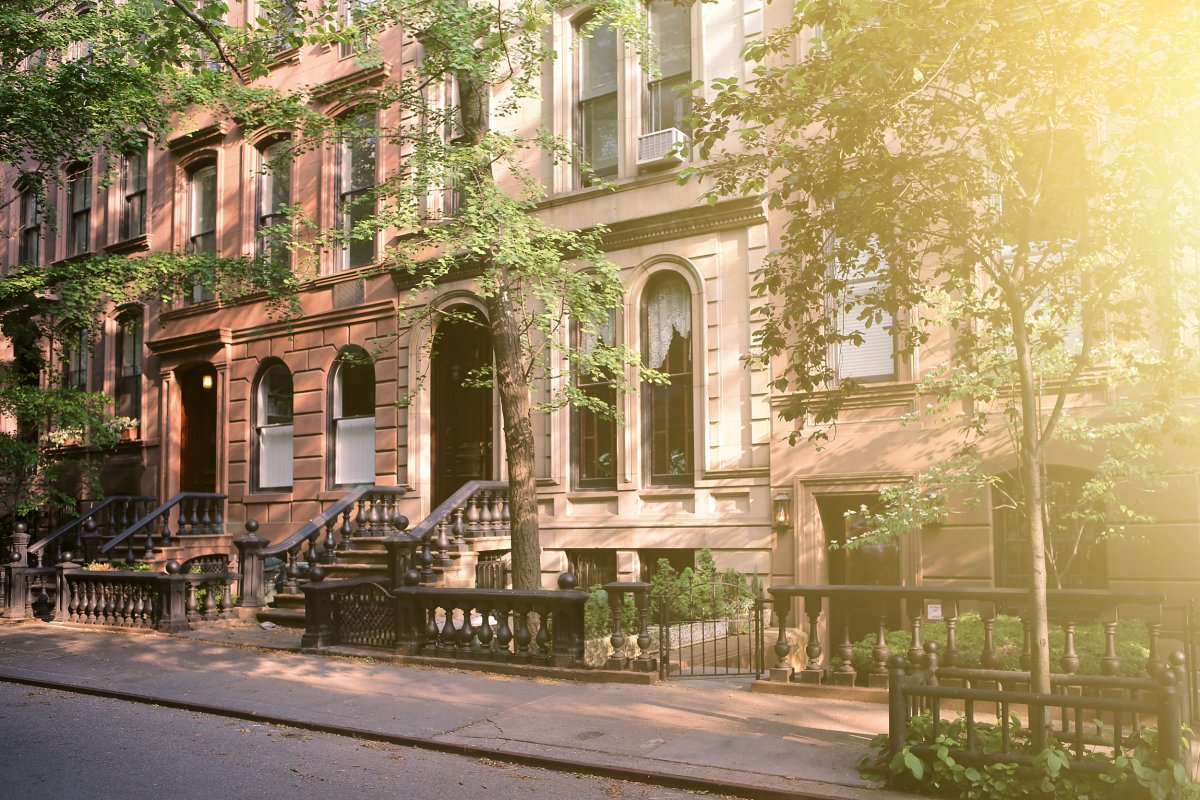Residents in New York City who are accused of being squatters can qualify for free legal assistance, a housing lawyer told Newsweek on Wednesday.
Squatting has emerged as a top-button issue in recent weeks after incidents in New York captured headlines creating the impression of a crisis. However, experts have pointed out that cases of people establishing residency in properties they have no legal right to are rare.
Asked if someone accused of being a squatter with an eviction hearing in New York City qualifies for free legal assistance, Ami Shah, deputy director of citywide housing at Legal Services NYC, said: "Yeah, they do."
"That language is very laden and we're seeing more and more landlords claim people are squatters and as soon as you look at the facts and the law around their possession of that apartment, in fact, they do have legal rights," she added.
A City Hall spokesperson clarified the position for Newsweek, emphasizing that only lawful tenants qualify for the assistance.
"New York City's first-in-the-nation Right to Counsel initiative provides free legal services to only lawful tenants facing eviction in housing court," William Fowler, Acting Deputy Press Secretary at the Mayor's Office, said in a statement.
"Anyone found to have been engaged in illegal activity—such as defrauding a homeowner or forcing their way into someone's home—does not entitle them to free legal representation through the Right to Counsel."

Shah's examples of people entitled to legal assistance included someone who has lived in their mother's apartment who has passed away or has been a resident in a property for a long time but then is accused of being a squatter.
"They have a right to possession and they have a right to an attorney when they're accused of being a squatter. Even if at the end of the day they don't have legal rights, they would theoretically be eligible for legal representation," she said. "But what we're seeing in New York City, in fact, is that most people are not actually squatters. That term is used to create a connotation around a particular tenant."
In such situations, those residents can get legal assistance.
"New York City has a right to counsel, so it is free for all eligible tenants," Shah added.
Fowler added that Mayor Eric Adams' administration has worked to expand access to right to counsel for the city's residents. "It has significantly increased the city's investments into Right to Counsel and connected nearly 100,000 New Yorkers to legal services last fiscal year alone, the majority of whom were able to stay in their rightful homes," he said.
"We are committed to using every tool at our disposal to ensure that New Yorkers at risk of eviction are getting the full scope of services they deserve and that landlords of small properties are not left without options by those unlawfully occupying a residence."
Legal Services NYC handles more than 26,000 cases a year, Shah said. She told Newsweek the term squatter has become an emotionally laden word and is being used by some landlords in situations that may not necessarily apply and that most people in New York City are not actually squatters.
"It has become more of a catch-all term to encapsulate any tenant or any people that don't necessarily have a lease but that does not mean they don't have the right to a lease."
The phrase squatter has also been used to create confusion, Shah said.
"When someone lived in an apartment with their family, for example, and the prime tenant that was on the lease passes away, but they were related to that person that has lived there for a long time, they have rights to continue remaining in that apartment," she said. "Legally, they are not a squatter. They are a successor tenant."
Shah clarified in a follow-up email that this applied to rent-regulated apartments.
"In rent-regulated apartments, people who have lived there with family members can be successor tenants," she said. "Succession rights do not apply to unregulated apartments."
The issue of squatting is being used to attempt to scramble those rights when the phenomenon is rare in the city.
"That term we've seen often used in order to try to confuse what's actually happening in New York City and make it seem like there are substantial squatter issues when in fact there are not, as well as try to paint a tenant in a particular light like they're doing something they shouldn't be when that's also not the case," Shah said.
"We don't see cases where people are in fact squatters very often at all, and I've been doing this for 9, almost 10 years now, and I have never personally had a squatter case."
Update 4/18/24, 8:35 a.m. ET: This article has been updated to add fresh comment New York City Hall's office.
Uncommon Knowledge
Newsweek is committed to challenging conventional wisdom and finding connections in the search for common ground.
Newsweek is committed to challenging conventional wisdom and finding connections in the search for common ground.
About the writer
Omar Mohammed is a Newsweek reporter based in the Greater Boston area. His focus is reporting on the Economy and ... Read more
To read how Newsweek uses AI as a newsroom tool, Click here.








